L V Prasad
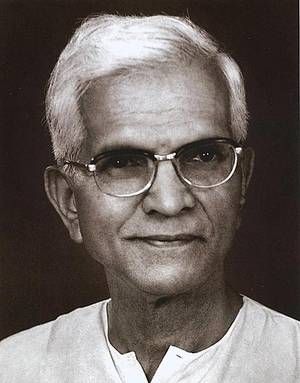
Subscribe to read full article
This section is for paid subscribers only. Our subscription is only $37/- for one full year.
You get unlimited access to all paid section and features on the website with this subscription.
Not ready for a full subscription?
You can access this article for $2 , and have it saved to your account for one year.
- Real Name: Akkineni Lakshmi Vara Prasada Rao
- Born: 17 January 1908 (Somavarapadu, Andhra Pradesh)
- Died: 22 June 1994
- Primary Cinema: Hindi
- Parents: Akkineni Sriramulu, Basavamma
- Spouse: Soundarya Manoharamma
- Children: Anand Prasad, Ramesh Prasad
Akkineni Lakshmi Vara Prasada Rao was born on 17 January 1908 as the second son to Akkineni Sriramulu and Basavamma in a remote village, Somavarapadu, in Eluru Taluk in the State of Andhra Pradesh in India. Always fond of cinema and a regular actor in small local dramas, Prasad developed a passion for acting and the moving image. Though intelligent, he was never interested in studies and was soon married at the age of 17 to his maternal uncle’s daughter Soundarya Manoharamma. Prasad’s father was declared bankrupt plunging the family into a state of depression. Meanwhile, Prasad decided to try his luck in films and moved to Bombay.
Prasad, who didn’t know any Hindi or English, was unable to find employment in the studios. He used to stand outside the studio for hours and persisted at this till he met a Punjabi boy Dharilal and landed an errand boy’s job in Venus Film Company. Sadly, Venus Film Company never completed any film and Prasad never got his wages. Dharilal’s sister Moti was working in Imperial Film Company who got Prasad a small role in Ardeshir Irani’s Alam Ara in 1931. Prasad also appeared in the first Tamil talkie Kalidas (1931) directed by H M Reddy, a former assistant to Ardeshir Irani, and subsequently in Bhaktha Prahlad (1931), the first Telugu talkie. Later, Prasad’s wife also joined him in Bombay where his first son Anand and later Ramesh was born.
Then he assisted director Ali Shah in the silent film Kamar-al-Zaman (1931). After a point, Imperial had to lay off people and Prasad was left jobless. He left Bombay with his family with the intention of raising funds to open his own production company. A telegram from H M Reddy, to act in Rohini Pictures’ Gruhalakshmi (1938), changed his life. He continued his work with him in the films Tenali Ramakrishna (1941) and Gharana Donga (1942). When Reddy left for Pune with his family, Prasad also left for home in his village. An opportunity to work as a production supervisor and assistant director brought him back to Bombay again when Tantra Subrahmanyam approached him for the film Kashta Jeevi. The film was abandoned after shooting three reels. He joined Prithvi Theatres to satisfy his acting passion where he also happened to meet Raj Kapoor, whom he would cast in his first Hindi film Sharada (1957).
In 1943 he started working as the assistant director for the film Gruha Pravesam (1946). Some odd circumstances ended up with Prasad becoming both the director and an actor in the film. Gruha Pravesam was recognized as one of the finest films of its time, paving the path for a successful career for Prasad in the industry. After the film’s success, Prasad directed Mana Desam in 1949 that introduced the Telugu superstar N T Rama Rao to films.
In the 1950s, Vijaya Pictures, considered as the largest film studio in Asia at that time, offered Prasad to direct their first film Shavukkaru starring N T Rama Rao and Shavukar Janaki (her debut film). Prasad made Samsaram (1950), bringing together N T Rama Rao and Akkineni Nageswara Rao in a social drama that broke records and became popular among filmgoers. Success chased him with films like Kalyanam Panni Paar/Pelli Chesi Choodu (1952, Tamil/Telugu), Rani (1952, Hindi and Tamil) and Paradesi/ Poongothai (1953, Telugu/Tamil). Then M Somasundaram approached him to direct his magnum opus Manohara (1954) starring Sivaji Ganesan. The film became a cult classic due to the brilliant performances of Sivaji Ganesan and P Kannamba, screenplay by L V Prasad, and for the scintillating dialogues by M Karunanidhi.
In 1956 he established his own Prasad Productions soon after the release of Ilavelpu (producer, 1956). His second son Ramesh established Prasad Film Labs, a colour film laboratory with a 70mm colour processing plant and stereophonic sound recording theatre in Chennai in 1974 after returning from the US. Prasad produced and directed his first Hindi film under his banner, Sharada (1957) starring Raj Kapoor and Meena Kumari, which was a remake of Tamil-hit film Ethirpaarathathu (1955). The film earned him great critical acclaim and secured three Filmfare Awards. Since then, he produced and directed several jubilee hits in Hindi - Chhoti Bahen (1959), Hamrahi (Producer, 1963), Daadi Maa (1966), Sasural (Producer, 1961), Milan (Producer, 1967), Jeene Ki Raah (1969), Khilona (Producer, 1970), Shaadi Ke Baad (1972), Bidaai (Producer, 1974), and Yeh Kaisa Insaaf (Producer, 1980). While Khilona (1970) won him the Filmfare Award for Best Film, his 1981 release Ek Duuje Ke Liye (a remake of 1978’s Telugu blockbuster Maro Charitra), starring Kamal Haasan and Rati Agnihotri was a superhit and also won three Filmfare Awards.
In Tamil, he made films like Manohara (1954), Mangaiyar Thilakam (1955), Thayilla Pillai (1961), Iruvar Ullam (1963), Idaya Kamalam (Producer, 1965), and Piriya Vidai (Producer, 1975). In Telugu, he directed films like Palnati Yuddham (1947), Mana Desam (1949), Shavukaru (1950), Pelli Chesi Choodu (1952), Missamma (1955), Samsaram (1950), and Illalu (Producer, 1965). In Kannada too, he produced films like Mane Belagida Sose (Producer, 1973) and Thande Makkalu (Producer, 1976).
In 1982 L V Prasad was awarded the prestigious Dada Saheb Phalke Award for his outstanding contribution in Hindi, Telugu, Tamil, and Kannada cinema and capturing the attention of millions of cinema lovers throughout the country. For this, he was also honoured with a Filmfare Award in 1970 for the film Khilona starring Sanjeev Kumar and Mumtaz. He also won various government honours like the Udyog Patra Award by the Central Government in 1980, Raghupati Vankayya Award by Andhra Pradesh Government in 1980, and Ramnoth Award in 1982 by Cine Technician Association.
Actively involved in several trade bodies, Prasad was also the President of the South Indian Film Chamber of Commerce and also served as a member of the Board of Film Censor. Prasad also contributed generously to medicine by opening the L V Prasad Eye Institute in Hyderabad. A man of rare distinction, L V Prasad, an actor, filmmaker, cinematographer, and producer who made an immense contribution to cinema, passed away on 22 June 1994.
References
- PRIDE OF TAMIL CINEMA: 1931 TO 2013: Tamil Films that have earned National and International Recognition by G Dhananjayan
- http://www.lvprasad.org/filmography/
- http://www.lvprasad.org/story/
-
Filmography (31)
SortRole
-
Jai Vejay 1977
-
Bidaai 1974
-

Shaadi Ke Baad 1972
-
Jeene Ki Raah 1969
-

Daadi Maa 1966
-

Beti Bete 1964
-
Iruvar Ullam 1963
-
Thayilla Pillai 1961
-

Chhoti Bahen 1959
-
Appuchesi Pappukoodu 1959
-

Sharada 1957
-
Mangaiyar Thilakam 1955
-



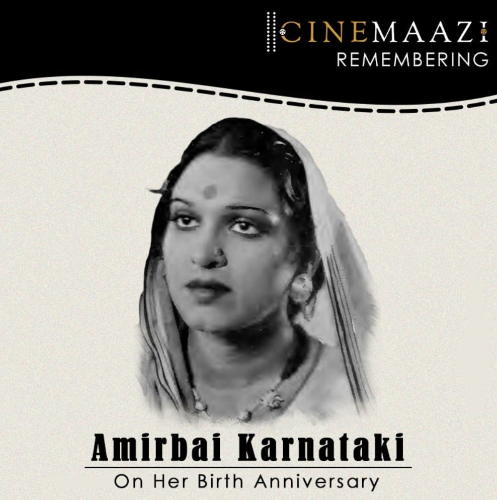

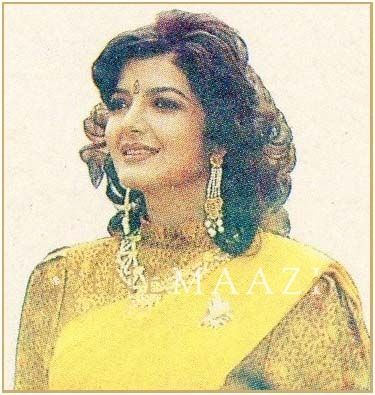

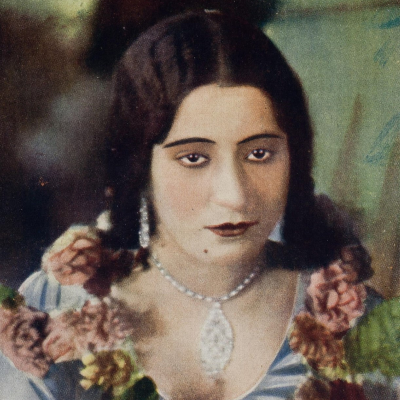


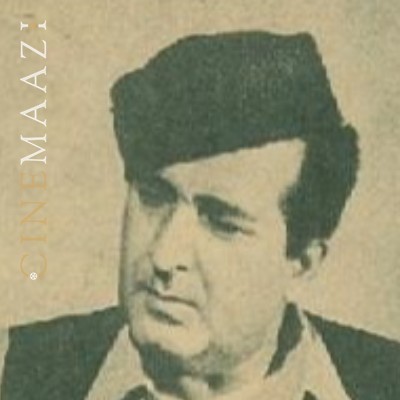

.jpg)



